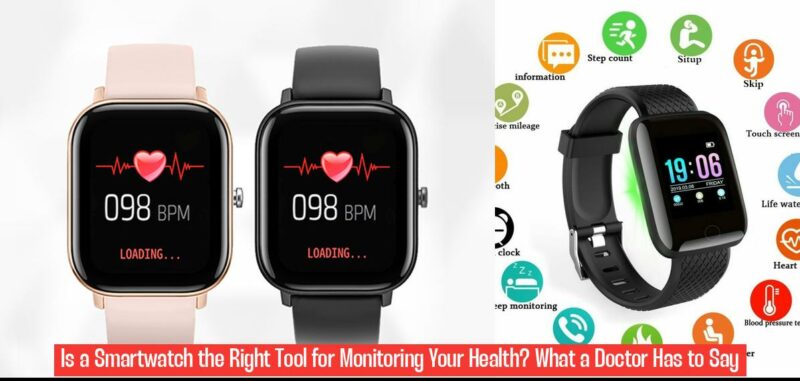Should I use a smartwatch to track my health data? A doctor explains
The allure of smartwatches is undeniable. They’re sleek, stylish, and packed with features that promise to make our lives easier, healthier, and more productive. But for those of us who are health-conscious, the promise of tracking our vital signs and fitness metrics holds a particular appeal. It’s tempting to think that wearing a smartwatch could unlock a deeper understanding of our bodies and empower us to make better health decisions.
However, before you jump on the smartwatch bandwagon and start blindly trusting your wrist-worn gadget, it’s crucial to understand its limitations.
Are smartwatches accurate enough for health tracking?
The truth is, while smartwatches have come a long way in recent years, they’re still not medical-grade devices. They’re designed to be fitness trackers, not clinical diagnostic tools.
Think of it this way: Smartwatches are like the fitness tracker equivalent of a handy kitchen scale. They can give you a general idea of your weight, but if you need a precise measurement for a medical reason, you’ll need to step on a doctor’s scale. The same principle applies to health data collected by smartwatches.
The accuracy of smartwatches varies depending on the specific device and the metric being measured. For example, heart rate tracking is generally quite accurate, especially during exercise. But when it comes to metrics like blood pressure, oxygen levels, and sleep quality, the accuracy can be questionable.
> “Smartwatches should be considered tools for self-awareness and motivation, not medical diagnostic tools,” says Dr. Emily Carter, a cardiologist and researcher. “While they can provide insights into your health, it’s crucial to remember that they are not a replacement for traditional medical devices or professional medical advice.”
What are some of the potential risks of relying on a smartwatch for health data?
While smartwatches can be useful for tracking basic fitness metrics like steps and distance, relying on them for critical health information can be risky.
* Inaccurate Readings: Smartwatches are prone to errors, and these inaccuracies can have serious consequences. For example, an inaccurate blood pressure reading could lead to unnecessary worry or even prompt you to make unwise decisions regarding your medication.
* False Sense of Security: Over-reliance on smartwatches can create a false sense of security, leading people to neglect professional medical advice or skip regular check-ups.
* Data Privacy Concerns: Smartwatches collect a wealth of personal data, including your location, activity levels, and even your heart rate. This data can be valuable to hackers, and there are concerns about data privacy and security breaches.
* Distraction: Smartwatches can be distracting, especially when you’re trying to focus on tasks or spend quality time with others. The constant notifications and alerts can be disruptive and can even lead to an addiction to checking your device.
* Physical Discomfort: Some individuals may experience physical discomfort from wearing a smartwatch, such as skin irritation or wrist pain.
Should I ditch my smartwatch completely?
Not necessarily! Smartwatches can still be a valuable tool for enhancing your health and fitness, but it’s important to use them responsibly and with a healthy dose of skepticism.
Think of your smartwatch as a personal coach, not a doctor. It can motivate you to be more active, track your progress, and provide you with insights into your health habits. But it should never replace professional medical care or the advice of a qualified healthcare provider.
Here are some tips for using a smartwatch safely and effectively:
* Choose a reputable brand: Look for a smartwatch from a reputable manufacturer known for reliable technology and accurate readings.
* Understand the limitations: Be aware of the limitations of your smartwatch and don’t rely on it for medically relevant information.
* Use it as a motivator: Focus on using your smartwatch to track your progress, set goals, and stay motivated.
* Don’t neglect professional care: Continue to see your doctor for regular check-ups and follow their advice, even if you’re using a smartwatch.
* Be mindful of data privacy: Review your smartwatch’s privacy settings and make sure your personal data is protected.
* Take breaks: Limit your screen time and give your eyes a rest.
* Be cautious about wearing it while sleeping: Some experts recommend avoiding wearing a smartwatch at night, as it can interfere with sleep quality.
Should I use a smartwatch to track my health data?
The answer depends on your individual needs and goals. If you’re looking for a motivator to help you stay active and make healthier choices, a smartwatch can be a valuable tool. But if you’re seeking medical-grade accuracy or relying on it to diagnose or treat health conditions, you’ll need to look elsewhere.
Ultimately, the decision of whether to use a smartwatch to track your health data is a personal one. But it’s crucial to approach this technology with a healthy dose of skepticism and understand its limitations. Don’t let the allure of gadgets blind you to the importance of professional medical care and sound health advice. Should I use a smartwatch to track my health data?
Yes, smartwatches can be used to track health data, but they are not medical-grade devices and should be considered tools for self-awareness and motivation rather than medical diagnostic tools.
Are smartwatches accurate enough for health tracking?
Smartwatches are designed to be fitness trackers, not clinical diagnostic tools. While they can provide general insights into health metrics like heart rate, their accuracy varies depending on the specific device and the metric being measured.
Don’t Miss – The First Marvel Comic: A Valuable Piece of Comic Book History or Just a Financial Investment?
What are some of the potential risks of relying on a smartwatch for health data?
Risks of relying on a smartwatch for health data include inaccurate readings, which can lead to unnecessary worry or unwise decisions, and a false sense of security that may result from over-reliance on the device for critical health information.



